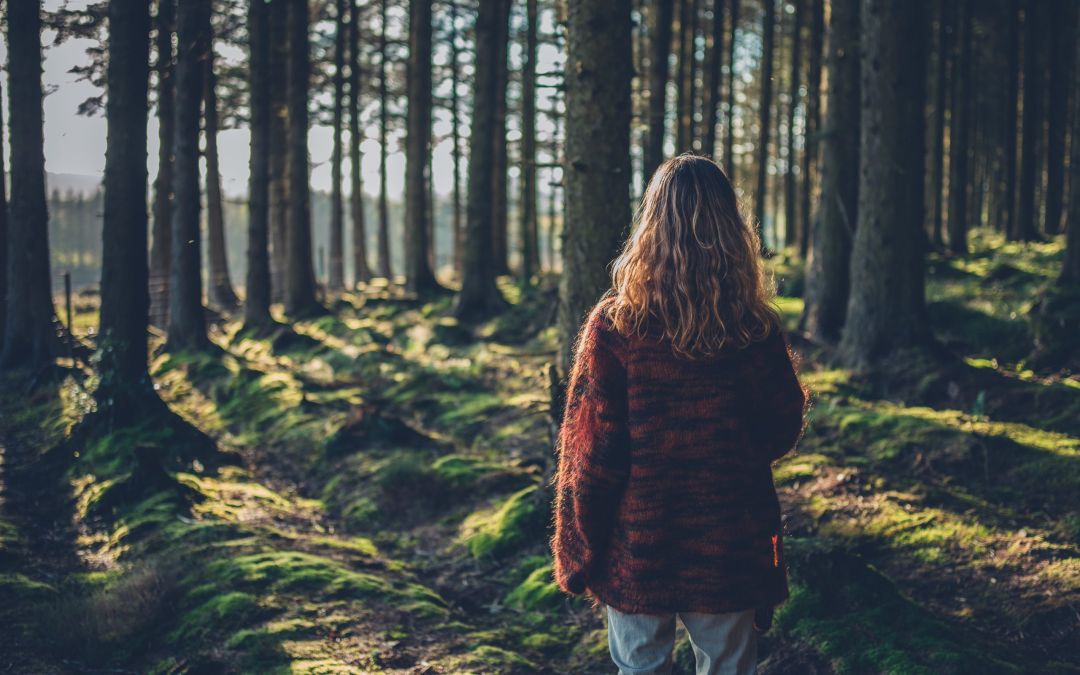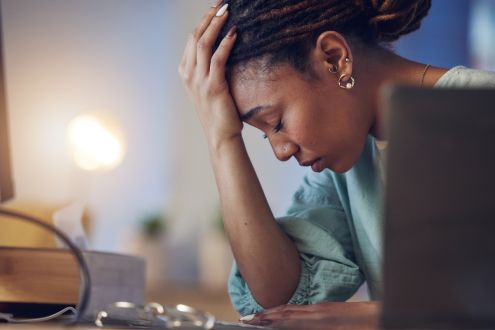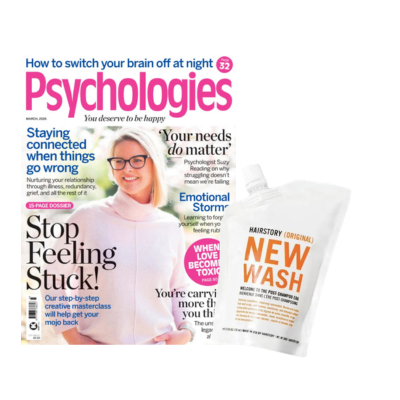Have an adventure… at home!
Adventure doesn’t have to be saved for holidays. Kate Townshend set off walking in her local area and discovered that exploration is a state of mind

A little breathless from the walk, I stand on a wooded hillside, gazing down at a Roman mosaic floor and what remains of the villa that once surrounded it. There are no hordes of tourists and I’m not in Greece or Italy. I’ve driven 20 minutes from my home town and wandered along a few miles of cool, green footpaths to reach this hidden marvel, housed within an unremarkable corrugated-iron shack. It’s a poorly kept local secret, mentioned by Bill Bryson in his book Notes From A Small Island, and I’ve wanted to see it for ages. And, since I’m the only walker on this particular day, it feels like a discovery for me alone… I’m the Christopher Columbus of Gloucestershire – and it’s thrilling!
The idea of something hidden and precious coexisting with everyday life; just waiting to be discovered is one I’ve always found exciting. As a child, The Secret Garden was one of my favourite books, a novel that beautifully evokes the joy in a moment of discovery – the way it makes impossible things feel possible. Children have a knack of viewing the world as one protracted exploration; stumbling from one wonder to the next with a spirit of constant awe.
But as we grow up and the steady, adult routines of our lives take over, it’s tempting to view this capacity for adventure as something to be confined to rare foreign holidays, with a guide to lead the way or, worse, as something only other people do – those willing to pack a bag for the North Pole, sail the Atlantic single-handedly or hike in the Sahara Desert.
But what if we can all be explorers in our daily lives? Phoebe Smith, author of Wilderness Weekends (Bradt Travel Guides, £14.99) – which she affectionately refers to as ‘The Lazy Adventurer’s Handbook’ – is a veteran wild camper and wild sleeper. She is keen to emphasise that there’s no list of remote locations we need to visit to call ourselves explorers: ‘Being an explorer is a state of mind,’ she says. ‘It’s not about raising flags and claiming firsts. It’s about being curious about our world and taking the time to observe it and immerse ourselves in it.’
A hush-hush society
I love Smith’s book and her attitude to exploration came back to me soon after we adopted our little rescue dog. Keen to expand his horizons, I began walking around parts of my home town I’d never visited. I found hidden parks, footpaths on disused railway lines that took me above the rooftops and a tiny, shining river, snaking its musical way through the suburbs. It has made me feel more grounded in my community and prouder of it; aware as I now am of its secrets.
Through this experience, I remember how much fun it is to approach the world with a spirit of constant curiosity, as Smith suggests. It’s so easy to take for granted the places we live as backdrops to our everyday lives, but I guarantee there are secret gardens to be discovered in every corner of the country.
Psychotherapist and author of The Phone Addiction Workbook (Ulysses Press, £13.99) Hilda Burke recommends bringing a little of our ‘holiday attitude’ home with us to help us find secret local rewards. ‘On holiday, time seems to stretch – we are taking in more, we are more alive; open to different experiences,’ she explains. ‘The more different the geographical environment and culture to the one at home, the more intense this feeling is. We can recreate it, experiencing each moment afresh, by being more curious and exploring new places and routes in our day-to-day lives.’
These days, if my husband and I pass a brown sign with the name of an obscure ruin or monument on it, we’re likely to stop the car and seek it out. We’ve wandered across Cornish moors in search of stone fertility circles and ringed evocative names on maps, tracing the best routes to get close enough to have a look. There’s something about seeking – and finding – a hidden place that speaks to the quester in all of us. And there’s a genuine buzz of endorphins and satisfaction when such quests yield their treasures.
What’s more, the impact of forays off the beaten track are even more wide-ranging. When you take yourself off physically to discover something new, you set a new pattern for your brain to wander down previously unexplored paths too. Physical exploration of the world becomes a metaphor for us to consider fresh ideas and ways of doing things – and it’s an excellent way to get unstuck, explains Smith: ‘It sounds crazy until you try it, but all it takes is one night away, when you do something different from your usual routine, to give you a complete reset.
Out on urgent business
‘Like everyone else, my job is full on, so allowing myself that time and space allows me to disconnect from the madness and reconnect with the important things in life, which we can miss in our haste. I never think of it as going out, I think of it as going back in.’
Of course it helps that some of the best adventures involve trips into nature. I’ve banished a troublesome bout of writer’s block with a spur-ofthe-moment outing to find the best bluebells in May. I’ve gained a new perspective on my problems when seeing the world with an ‘otter’s eye view’; swimming along a stretch of river.
Wake up! Can you see it?
There’s an awful lot to be gained by stepping into these parallel universes and I remember why the feelings of the character, Mary, in The Secret Garden resonated so much: ‘Mary called it “The Secret Garden” when she was thinking of it. She liked the name, and she liked still more the feeling that when its beautiful old walls shut her in, no one knew where she was. It seemed almost like being shut out of the world in some fairy place. The few books she had read and liked had been fairy-story books, and she had read of secret gardens… Sometimes people went to sleep in them for a hundred years, which she had thought must be rather stupid. She had no intention of going to sleep and, in fact, she was becoming wider awake every day which passed…’
Exploring is about waking up to our surroundings and, like Mary, the more we do it, the more awake we become.
Image: Getty









